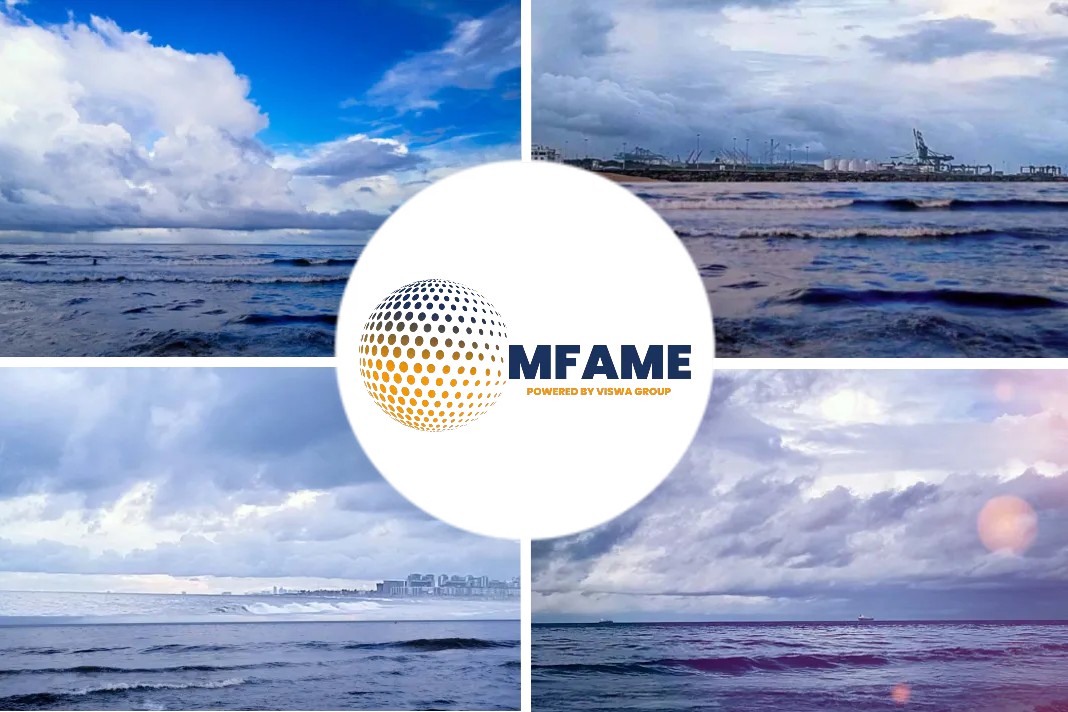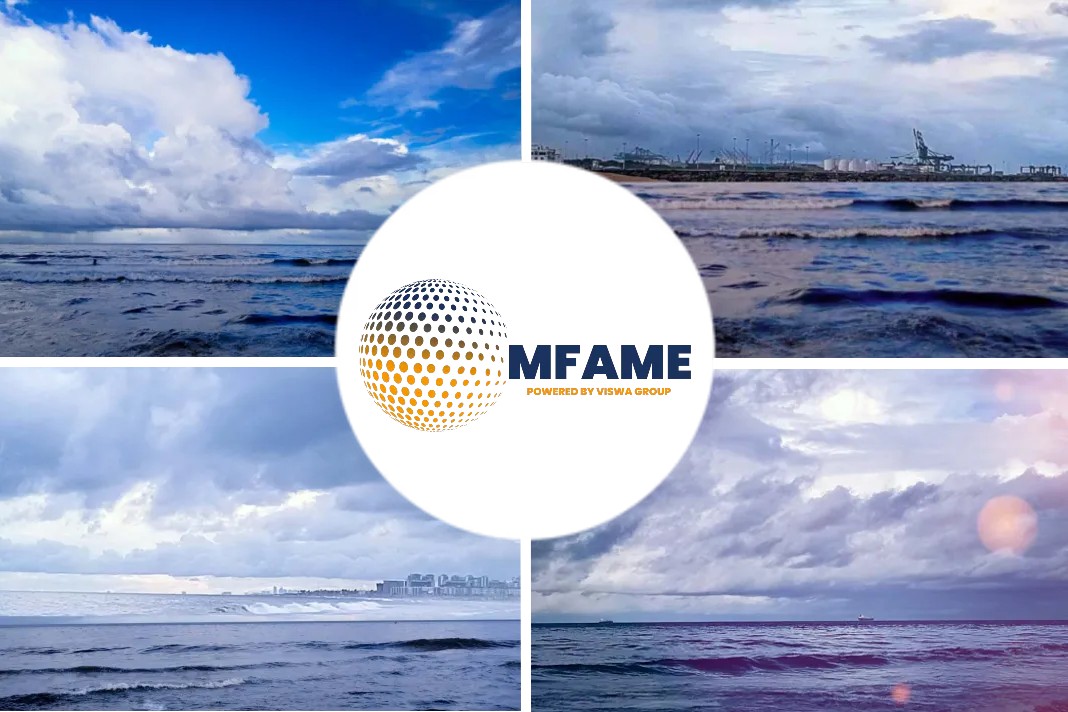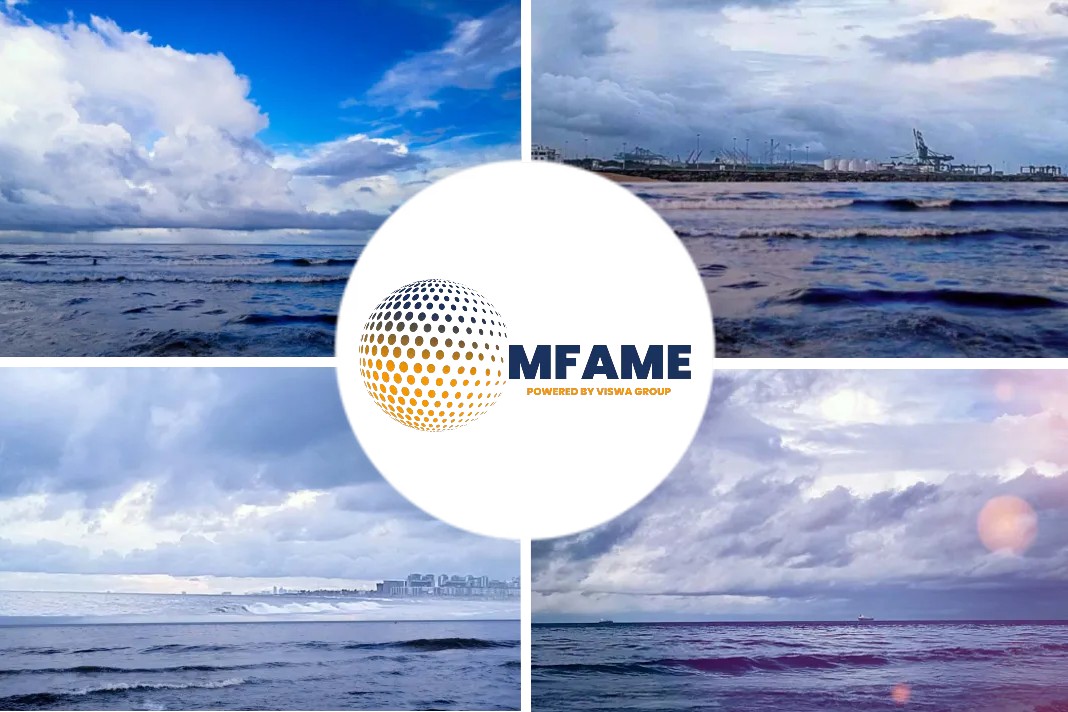- When it comes to the age-old logistics and shipping industry, digitalisation still remains a challenge.
- Danish shipping giant Maersk is ushering changes in the industry with the help of their startup accelerator program, OceanPro.
- Recently, the first cohort of the OceanPro accelerator program showcased their AR-VR solutions post the 120-day intensive training program in Bangalore.
- This transformation is about becoming a global integrator of container logistics.
When it comes to the age-old logistics and shipping industry, digitalisation still remains a challenge, says an article published in Economic Times.
The Age of Digitalization
Evolving customer expectations, however, has made it crucial for the companies in the sector to keep up with the digital age. In order to meet evolving business needs and stay ahead in the game, Danish shipping giant Maersk is ushering changes in the industry too. It is integrating new technologies into the traditional processes with the help of their startup accelerator program, OceanPro.
Recent AR-VR Solutions
Under the leadership of Sriram Narayanasami, Global Commercial Process Head, Maersk, Ocean Pro was setup in 2018. Recently, the first cohort of the OceanPro accelerator program showcased their AR-VR solutions post the 120-day intensive training program in Bangalore.
About the Cohort
The cohort consisted of seven startups:
- Zasti (Artificial Intelligence)
- Inatrix (Machine Learning)
- MintM (Computer Vision)
- KrypC (Block Chain)
- LinkedDots (IoT)
- LaVela Pictures (Virtual Reality)
- One internal startup, Dhruv (Data Mining)
Incorporating new age technologies such as Virtual Reality, Blockchain and IOT among others, these startups have come up with solutions to address a wide range of subjects. These range from customer experience, digital training, and equipment maintenance to tracking the inter-modal location of a container on a real-time basis.
Towards Global Integration of Container Logistics
Talking about OceanPro in context of the overall transformation at Maersk, Chief Transformation Officer and Head of its Global Service Centres, Navneet Kapoor said, “As the world’s largest shipping and logistics company operating in 120 countries, Maersk carries 20 percent of world’s trade on it. We are a 100-year-old company and an iconic brand across the world. We are also a company that in the middle of a significant transformation like many large old economy businesses.”
Kapoor says this transformation is about becoming a global integrator of container logistics, moving from being leaders in the shipping world to an end-to-end logistics player and as part of that the company wants to accelerate its journey to become a sustainably growing profitable company.
“Transformations are hard, especially for large companies like ours and there is a lot happening in that regard. Technology is a key part in that transformation, innovation is a key element of that; being in Bangalore it is our responsibility to partner with this amazing startup ecosystem which is best in the world to accelerate our transformation,” says Kapoor.
What is different?
OceanPro differentiates itself with other accelerators in many ways, explains Narayanasami, “There are several startup accelerators in Bangalore, but OceanPro is a pioneer in startup accelerators in the shipping and logistics domain. We are working on a number of areas and the key here is that we link it back to the Maersk transformation. We are linking it back to what are the big problems we need to solve for the company.”
He says that, from there they see what are the problems which can be solved through their IT resources. Where they need to bring in an innovation muscle that they can get through the startups so that things speedup. At OceanPro it’s the problem that chases the technology and not the other way round. This is anchored within the business and they anchor it with very senior business sponsors.
A Strong Indian Customer Base
He adds that the other unique feature of OceanPro has been its ability to leverage a very strong customer base in India. “In India, we have 29,000 customers, every one in five dry containers go on a Maersk vessel and every one in four refrigerated container goes on a Maersk vessel. With such a large customer base we are able to test some of the solutions with our customers,” says Narayanasami.
Narayanasami said the engagement with start-ups could be in the form of the contract and in some cases it could also be investment as well. Maersk has already signed contract with two startups namely KrypC which offers Blockchain solutions for trade finance; and LinkedDots (IoT), an Industrial IoT Solutions Company. They intend to sign up contracts with all startups that have graduated from the first cohort.
Linkeddots (IoT)
- Maersk.com is currently among the world’s largest B2B transaction sites with average hourly revenue of $1.3 million.
- About 98% of Maersk’s 60,000 customers make their bookings through this site which is fast evolving into a one-stop-shop for digital solutions.
- Maersk is first leveraging the Linkeddots solution in countries where the GPS exists.
- It is yet to implement the solution in countries like India where 90 percent of the truck do not have GPS.
An Industrial IoT Solutions Company, Linkeddots, has developed inter-modal platform and application to provide visibility of container movement inland. It is being piloted in 11 countries in LATAM, Europe and Africa for a limited volume of containers. The solution is hardware and provider agnostic and even a trucking partner can join hands with Linkeddots, as long as they have an existing fleet tracking system.
Vendor Onboarding with GPS
“We have developed a vendor onboarding platform which enables Maersk to onboard new trucking vendors in less than one hour and start receiving GPS feeds from their system. With this solution, Maersk is able to get near – real time information of the container during inter-modal transit,” explains Linkeddots cofounder Devaraj Srinivasan, who co-founded the startup in April 2015. This application is getting integrated with Maersk Internal IT System to related Booking ID and Container Number.
How does it work?
“In simple terms we have containers that arrive on the ports and 40 percent of these containers need to be shipped to say 500 km to another distance. During that we don’t have a visibility of where the container is. When it is on the vessel we know it is on the vessel but we don’t have the ability to track them on the roads. We have a pool of three million containers, if we have to stick to an IoT device on each one of them it is a very expensive preposition. Looking at another way to solve the problem we concluded that we can actually use the GPS in the truck that carries the container and track the truck and hence track the container,” says Narayanasami.
He adds that without putting an IoT device they are tracking the container by tracking the truck itself. Linkeddots team is already collecting data in 11 countries from the network providers in those countries and aggregating that data. ”So once we map out container we would be able to show that on our portal Maersk.com,” explains Narayanasami.
Statistics on the System
Maersk.com is currently among the world’s largest B2B transaction sites with average hourly revenue of $1.3 million. About 98% of Maersk’s 60,000 customers make their bookings through this site which is fast evolving into a one-stop-shop for digital solutions.
Maersk is first leveraging the Linkeddots solution in countries where the GPS exists. It is yet to implement the solution in countries like India where 90 percent of the truck do not have GPS. Narayanasami, however, said that they intend to use the GPS of the truck driver’s mobile phones. “Most of the trucking companies are aggregating that data and putting it on the portal so can we use that,” he adds.
Zasti (Artificial Intelligence)
- Maersk has around three million containers globally.
- The industry as a whole spends about $3 billion in equipment management and Maersk is 20 percent of the market share.
- Earlier there was no evidence that the customer has damaged the container.
- Now everything that needs to be cleaned or repaired will have a photograph so the vendor.
Zasti is an AI platform that makes use of beat learning (image analytics, machine learning) to understand the damage that is caused to containers as well as ensure future damage control. Currently, Zasti is working with Maersk on a pilot to track 200 containers per day in Chennai dealing with issues such as cleaning, damage detection and damage prevention.
The benefit of their deep learning algorithms helps improve efficiencies and predict possible hindrances in this regard. For instance, the data collected helps them understand where the company has to clean a given container or fix any damage.
Where lies the problem?
“Maersk has around three million containers globally. The industry as a whole spends about $3 billion in equipment management and Maersk is 20 percent of the market share. It is a pretty sizable spend in the industry and by using image analytics we intend to reduce equipment cleaning and repair cost that we incur as an industry,” explains Narayanasami.
A Solution In Pictures
He adds, “Everything that needs to be cleaned or repaired will have a photograph so the vendor will know that he is under tighter scrutiny and hence we will be able to challenge him. Also, with this some of the insurance claims we have the opportunity to pass the cost to our customers. Earlier there was no evidence that the customer has damaged the container. Now that we are taking the picture we not only are able to invoice back to our customers but also give them a proof of the damage created by them.”
Zasti co founder Ram Srinivasan sees shipping and logistics industry as a huge space for their potential growth. “Given that unlike aviation, healthcare, finance, and banking – logistics has been progressing digitally on a rather slower scale. Traditional methods and techniques have been implemented for almost three decades with no user interface, as such. However, this becomes an opportunity for innovations being initiated by startups given that very few focus on logistics tech,” he says.
LaVela Pictures (Virtual Reality)
- LVP is working on a voice guided immersive learning experience for the end user on non-accessible operational areas of the logistics industry.
- They want to create a VR experience, which will guide the audience from the perspective of ship.
- The entire voice over which guides the audience to navigate across various levels in the ship is narrated from the Ship’s perspective.
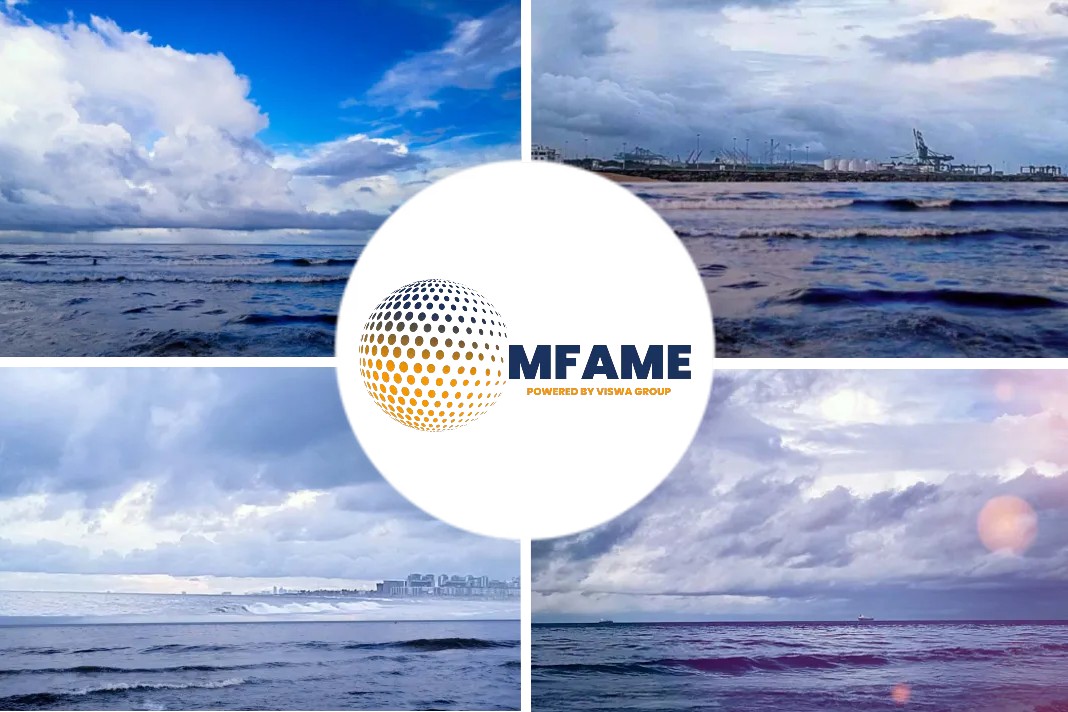
Virtual reality is widely used for entertainment purposes but with Maersk, La Vela Pictures (LVP) has leveraged it to provide a rich learning experience in the shopping and logistics domain. LVP is working on a voice guided immersive learning experience for the end user on non-accessible operational areas of the logistics industry.
“What Mearsk wanted was to create a VR experience for one of their largest vessel ‘Triple E’. What we suggested was not just create a VR experience, but make it a story which will guide the audience from the perspective of ship. The entire voice over which guides the audience to navigate across various levels in the ship is narrated from the Ship’s perspective,” explains LVP cofounder Yathirajan V.
How is this helpful?
He adds that this treatment of VR experience impacts user and the memory retention rate of learning via the VR experience are high. “We achieve two things, create a life time experience for people who have not been on EEE vessel and also understand and learn the various important functions performed on board the ship,” says Yathirajan V. A young company based in Mumbai, India and Singapore in the Media & Technology domain, LVP offers solutions in Virtual & Augmented Reality, Digital Signange, 3D Interactive & Custom Content for Digital Kiosks among others.
What has changed?
“We have 12000 colleagues in our global service centre. When we started many years ago we use to take our teams on board a vessel. However, since then the security around getting people on board a vessel and on port has become so stringent that you take two days and hardly spend half an hour on the vessel. With LVP we have created this immersive experience. In our next phase we will explore if we can do the same for terminals and warehouses as well so that our people who are working in the office can experience what happens in the real life,” says Narayanasami.
Maersk is also looking at VR for more advanced applications. “Safety is a big priority for us and we are exploring as to how we can use this immersive experience in our ports. For example, in our port in GTI Mumbai, there are close to 2000 new truck drivers entering a terminal where there is heavy machinery moving around. We are looking at giving them a VR experience so that we tell them what they have got to avoid,” he says.
KrypC: Blockchain
- At Maersk the startup is working on digitizing the bill of lading cycle by generating encrypted cargo token to replace physical document.
- It aims at improving visibility of E2E value chain of Maersk Trade Finance Customer.
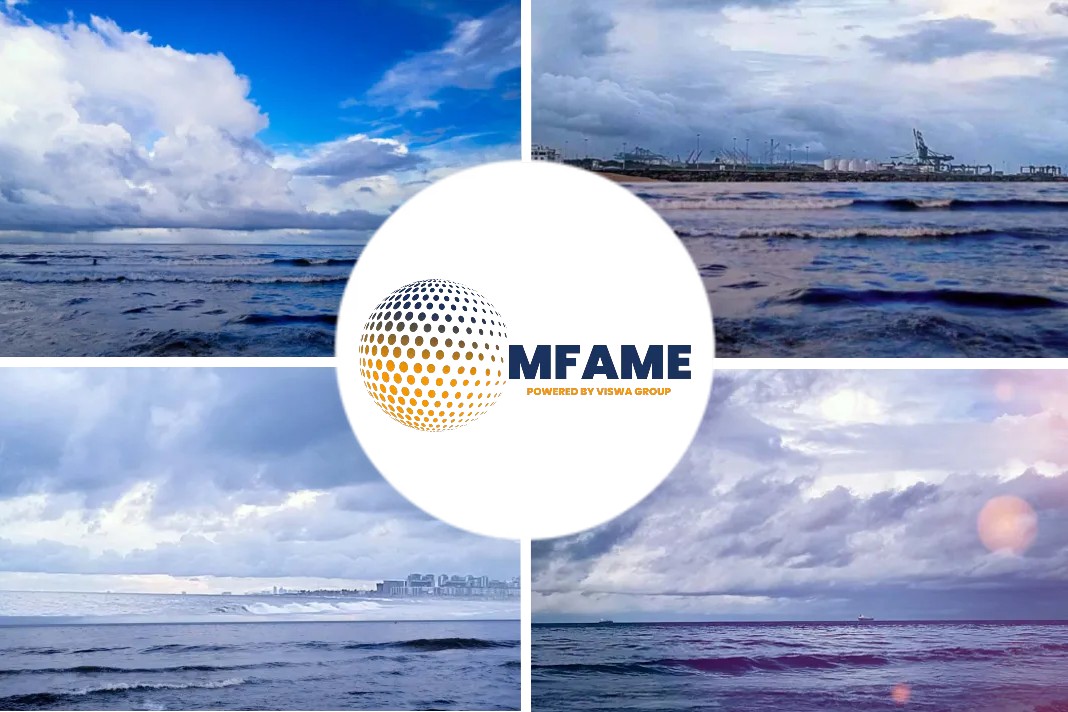
Founded by Ravi Jagannathan and Venkataraman VS in 2015, KrypC is a platform to create accelerated blockchain solutions. At Maersk the startup is working on digitizing the bill of lading cycle by generating encrypted cargo token to replace physical document.
What will improve?
It aims at improving visibility of E2E value chain of Maersk Trade Finance Customer which will further enhance their Trade Finance Product Value Proposition to Customers. “We are working on an application with KrypC to develop one of the first blockchain solutions for trade finance. It is an exciting application, which will help us to manage all vendors that come into play in a global transaction.”
Consider there is a purchase order from a large customer say the US. The application helps to manage a whole cascade of purchase orders from the US to the next customer and through to their direct customer. So now everybody gets the same information at the same point of time. And if anytime there is change that also cascades to all of the different parties.
Guaranteed Data Security
“Nobody can change or fudge data as it is a blockchain. It is a hyper ledger because it is taking the financial flow of information and logistics flow of information, it is actually two ledgers speaking to each other. This is the first time that something like that is done in our space,” explained Sanjay Tiwari, Global Head Commercial at Maersk.
Dhruv (Data Mining)
A Maersk internal startup founded by Deepak Kapoor, Dhruv is creating E2E tracking solution purely dependent on abundant data in various systems and smart consolidation effort. It is developing a standalone web UI which can track and trace containers / shipments while in the ocean.
“Today when customers can see that the containers are on board our vessel, they can see key milestones when it leaves one port it moves to the other port. They don’t know what is happening in between the ocean. The solution that Dhruv is creating is similar to the flight tracker map wherein flight tracker tells you where the flight is at a particular time and when it is due to arrive.In flight tracking not much can be done about it as the flight is in air, but it is just a feel good factor that we know where the plane is. We are doing something similar here using data. So without using IoT we are able to know where exactly in the ocean is the container. It is just putting customers in control of that information,” explains Narayanasami.
MintM (Computer Vision)
Founded by Sachin Garg in 2012, the startup is computer vision based data platform which helps physical businesses with real time measurement, analysis and automation. The startup is working with Maersk to develop a label reading solution to automate the inventory management process in Maersk’s APM Terminals and SCM Warehouses resulting in cost savings.
Inatrix (Machine Learning)
The startup, that focuses on emergent technologies namely Robotic Process Automation, Machine Learning, Internet of Things and Artificial Intelligence, is using technology to achieve higher cost control and hence savings in the procure to pay process at Maersk.
The innovative technology solutions by the startups at OceanPro provide vast opportunities to the shipping and logistics sector to improve performance and serve their customers better. Being an early mover in making intelligent use of a whole range of new technologies in its businesses, Maersk as a world leader in shipping services has a significant role to play in redefining this traditional industry.
Did you subscribe to our daily newsletter?
It’s Free! Click here to Subscribe!
Source: Economic Times






